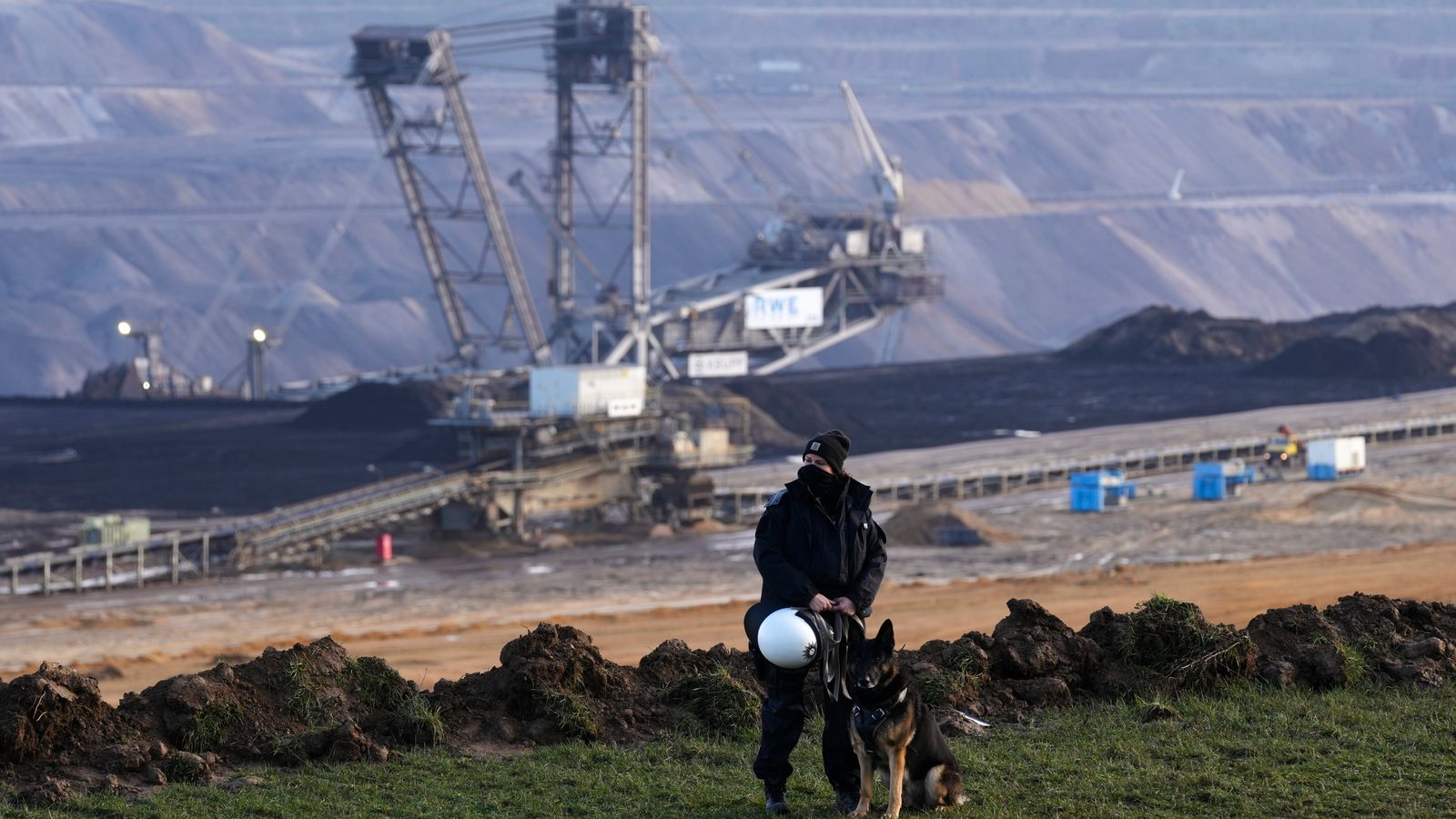Germany’s Garzweiler mine could hardly be more symbolic of the conundrum facing much of Europe right now.
A country partially run by the Green Party is tearing down wind turbines to make way for more coal extraction.
From an environmental point of view this is fairly obviously not good. Coal is the dirtiest of all fossil fuels.
But those in charge of Europe’s most important economy, for now, have had to sacrifice climate change policies in order to keep the lights on.
It comes as riot police backed by bulldozers removed scores of activists from buildings in an abandoned village during a second day of confrontations over the expansion of the Garzweiler mine.
Please use Chrome browser for a more accessible video player
Officers climbed ladders to reach protesters perched on roofs and walls in Luetzerath, which energy firm RWE wants to clear to expand its energy facility.
The problem is that coal may be dirty but it is cheap and reliable and the infrastructure to get it out of the ground and into power stations already exists and functions perfectly well.
And in the aftermath of Vladimir Putin’s invasion of Ukraine and subsequent energy shock, particularly due to the availability of Russian gas, Germany believes it could be the difference between business as usual and rolling blackouts.
This is also why the country has extended the lifespan of some of its nuclear power stations, despite promising to close them.
Germany is not alone.
Poland is expanding coal production and Bulgaria is extending the life of its coal mines.
The UK has done the same for a number of coal fired power stations to ensure security of supply this winter.
In fact global coal consumption rose to an all-time high in 2022.
The good news is that there are many who believe this is a blip.
The International Energy Agency says that the global energy crisis will, in the end, accelerate the clean energy transition.
It predicts that emissions of fossil fuels will peak by 2025 as coal use falls over the coming years and demand for natural gas plateaus by the end of the decade.
Germany, for its part, says it will still phase out coal by 2030, although that doesn’t lessen the symbolism of what’s happening at Garzweiler.






